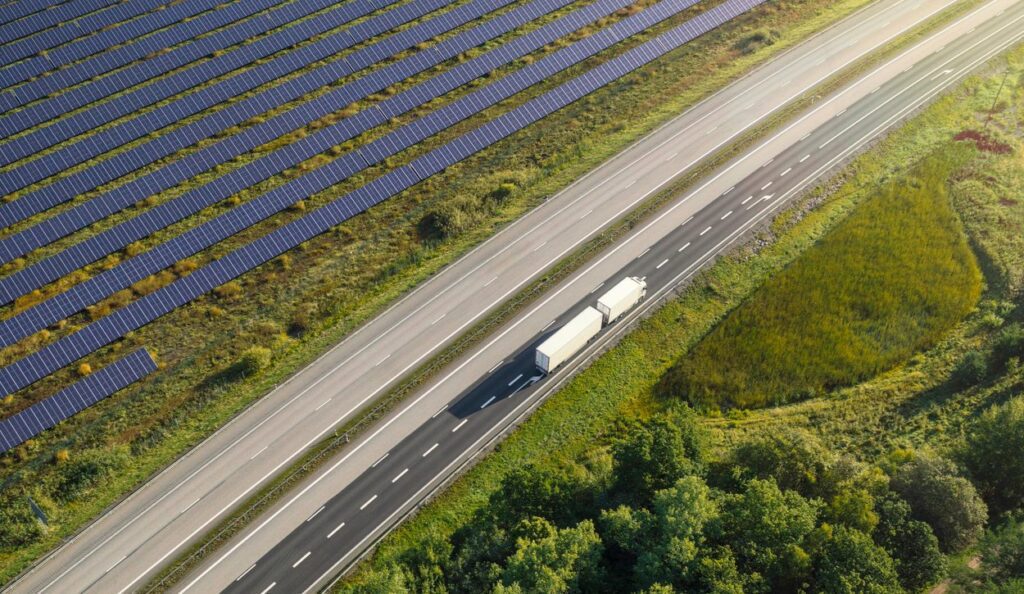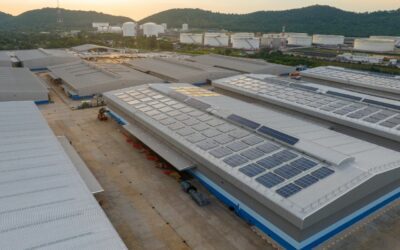Last-Mile Solar Logistics Guide
Solar power remains one of the most popular renewable energy sources in the United States and around the globe with solar photovoltaic (PV) panels producing clean, renewable energy for both residential and utility-scale applications. As evidenced in the below graph from the U.S.
Energy Information Administration, continued investment in U.S. solar power over the last decade has also resulted in a steady increase in solar PV panel shipments. Of the 31 million kilowatts of solar capacity shipped in the United States in 2022, 88% were imports – shipments destined for U.S. residential and commercial solar projects.1
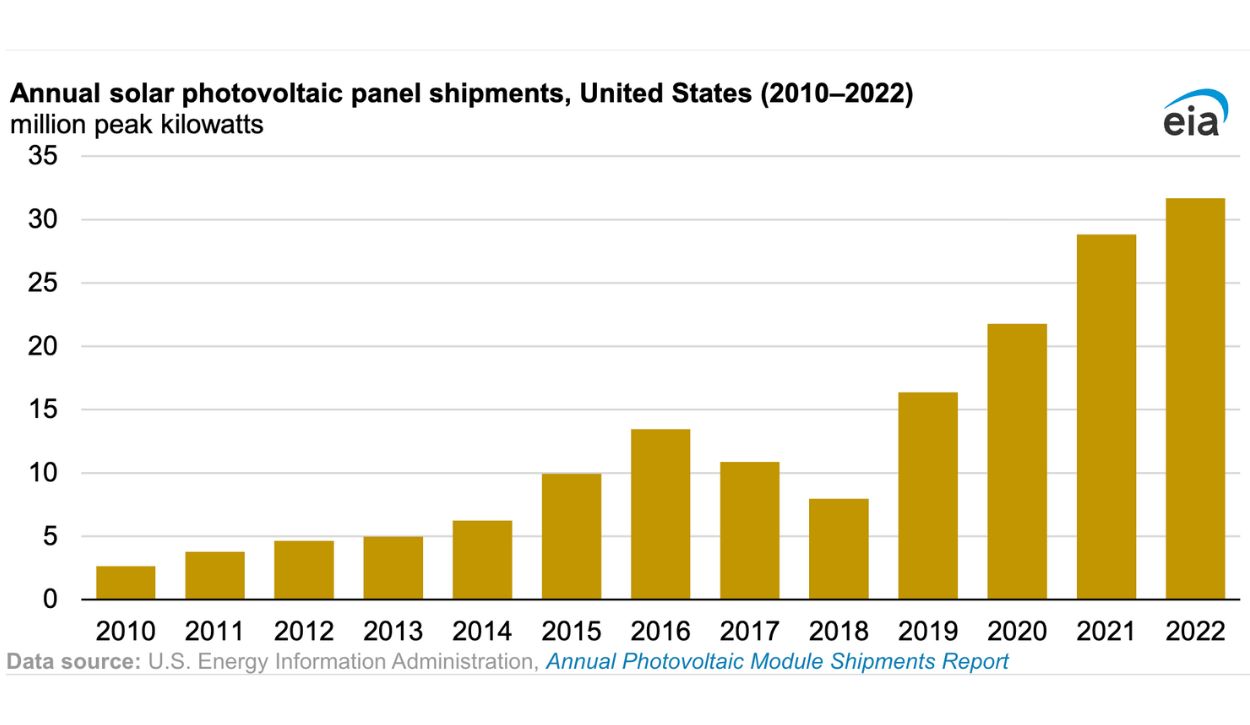
Solar panel shipments are transported globally through a complex international supply chain – involving manufacturers, freight forwarders, foreign and domestic Customs brokers, warehousing providers, and last-mile logistics companies who ensure the panels get to their destination on time and on budget. Read on for more details about what goes into successful last-mile solar logistics.
What is “last-mile” logistics?
“Last-mile” refers to the final stage of the international or domestic shipping process. Last-mile logistics involves picking up a product from a port, railyard, or distribution center and delivering it to its final destination. Despite being the last piece of the puzzle, last-mile transportation faces unique challenges in meeting customer deadlines and keeping delivery costs affordable.
How Solar Panels are Delivered to Energy Project Sites
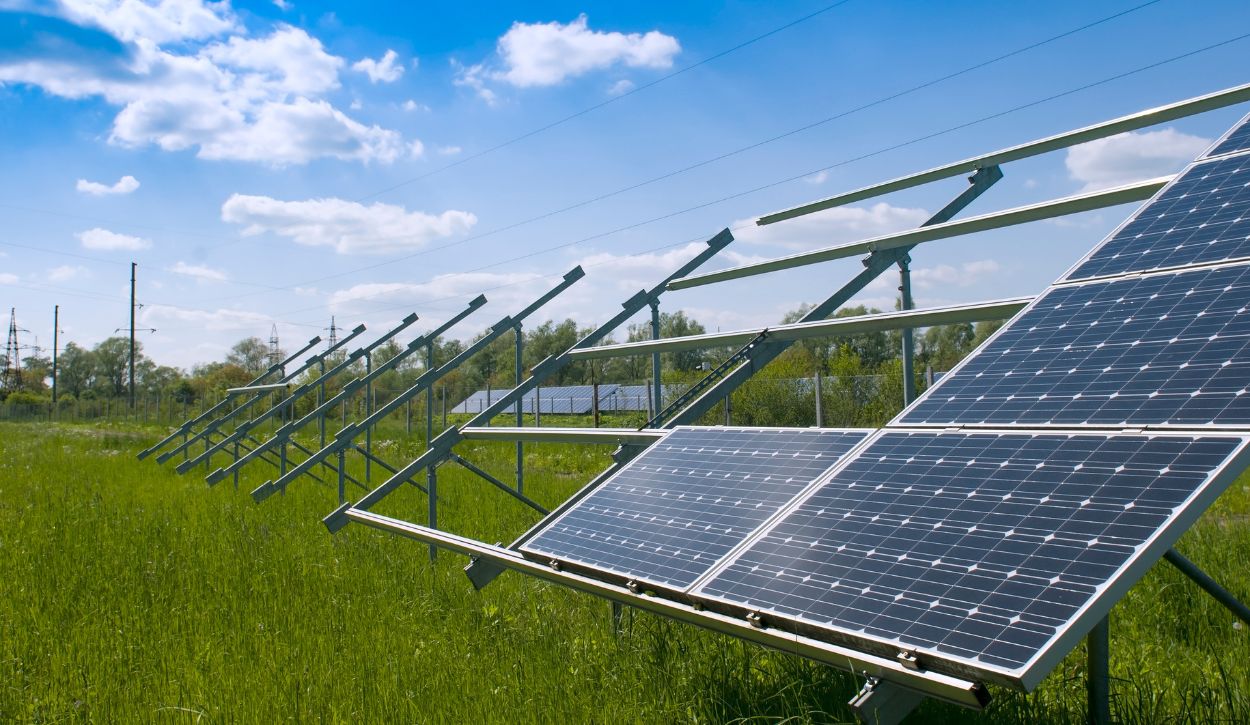
Ocean freight is typically the most cost-effective way to ship solar products overseas, while air freight is usually a faster option for projects with strict deadlines. Once a solar panel shipment arrives at the destination country, it can be moved inland through a variety of intermodal transport methods. Depending on how far the final destination is from the port of arrival, solar shipments are sometimes routed to move by rail – or they can be trucked directly from the port to their destination.
Solar panels are palletized and carefully packaged using protective materials to avoid damage during both domestic and international transit. If the load is over-dimensional or overweight, it may not fit in a conventional van and could require the use of a flatbed trailer. Either way, this heavy equipment is best handled by transportation companies with extensive know-how in heavy-haul shipments to ensure safe delivery.
Solar Panel Delivery Challenges

Successful final-mile logistics is a careful science regardless of the commodity being delivered, but solar panels come with distinct challenges. Heavy solar equipment can’t always be delivered in a standard shipping van or shipping container, it’s at risk of being damaged during transit, and it needs to arrive onsite according to energy project timelines. Effective supply chain management requires top-notch renewable energy logistics.
Solar Panel Weight & Dimensions
The exact weight and dimensions of a solar panel shipment varies widely across different models. Assuming a weight of around 50 lbs per commercial solar panel and a pallet that fits about 30 panels, a single pallet of solar panels could weigh upwards of 1500 lbs. And while residential solar panels typically fit into a conventional truckload, utility-scale solar panels could qualify as oversized shipments depending on the dimensions.
Heavy-haul and oversized loads require additional permits, optimized routing, and even specialized equipment like flatbed trailers. An experienced heavy-haul transportation company will be able to help you determine the best way to get your shipment where it needs to go.
Fragile Materials in Photovoltaic Modules
Solar photovoltaic modules are constructed using carefully designed silicon PV cells and large panels of glass among other materials. As you can imagine, the end result is a product that can be easily damaged during transit. Careful palletizing helps to protect solar panels, but caution during last-mile delivery is critical. Planning a successful solar project requires partnering with a reputable logistics company that will take every precaution to thoroughly vet drivers, secure the load using the proper equipment, and execute route planning ahead of time if necessary.
Strict Energy Project Timelines
On-time delivery is one of the main challenges of all last-mile transportation efforts. From groceries to machinery, products headed to the end-user are usually expected on strict deadlines. Energy projects take this sense of urgency to the next level, as compromised delivery schedules result in costly power disruptions or installation delays. It’s crucial to ensure your shipment is handled by a last-mile logistics partner you trust. Global logistics complications are an expected part of the transportation trade, but it makes a difference when all parties involved in your supply chain are working for your success.
Last-Mile Solar Logistics Services at Titan Worldwide
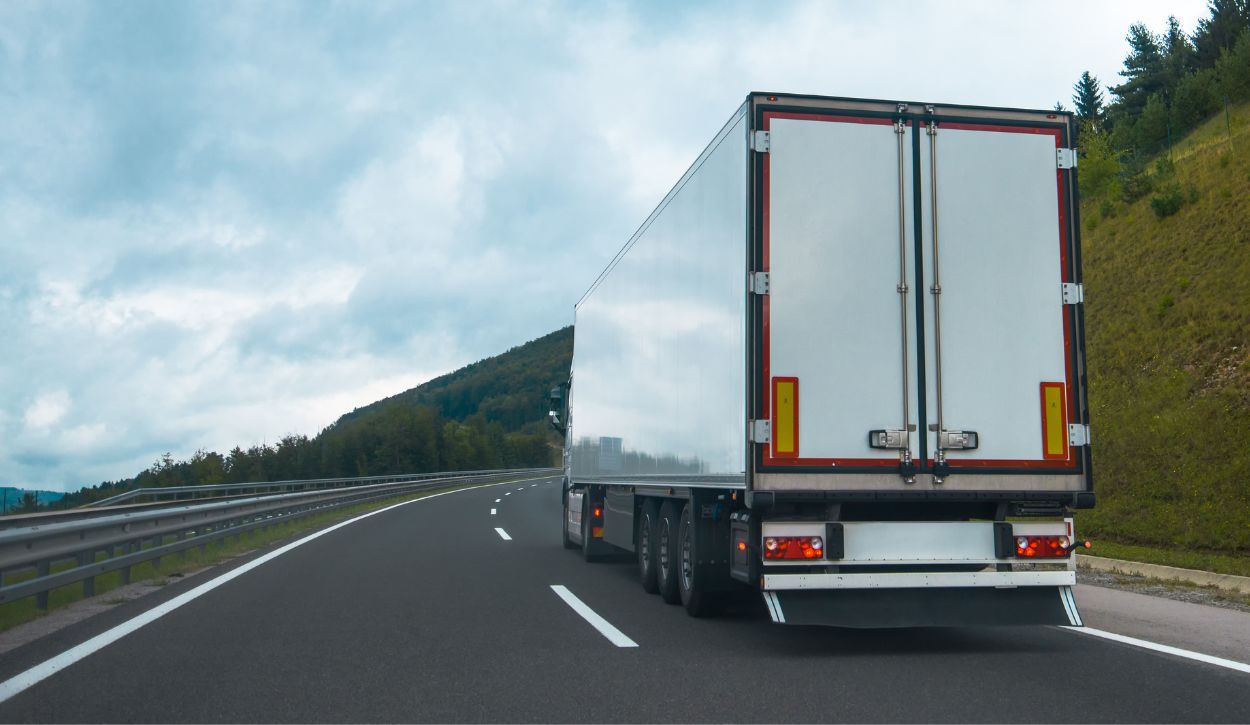
Titan Worldwide provides expert heavy-haul shipping services for the solar energy industry, including equipment transportation to utility-scale solar farms. With extensive experience in heavy machinery transport solutions, Titan is a trusted partner for solar power projects. The team at Titan provides comprehensive last-mile logistics solutions, such as:
- Route planning
- Full truckload (FTL) services
- Less-than-truckload (LTL) services
- Local deliveries & long-haul trucking
- Flatbed trucking
- Hazmat hauling
Learn more about our solar shipping services and contact us for a quote today!
